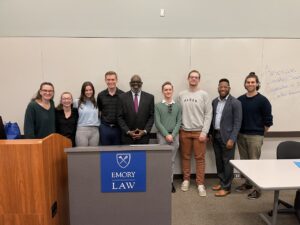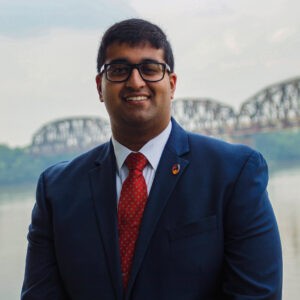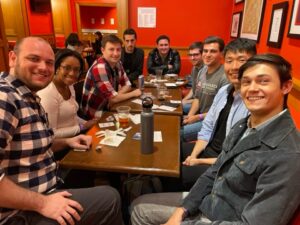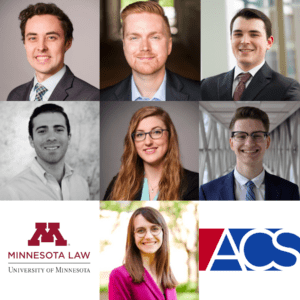 The Emory Law Student Chapter is thrilled to be recognized as Student Chapter of the Week!
The Emory Law Student Chapter is thrilled to be recognized as Student Chapter of the Week!
The Chapter had a busy year, starting with an event on reproductive rights in Georgia. The fall semester was highlighted by a Pilot Program event with Mark Joseph Stern from Slate. The Chapter also hosted panels on workers’ rights, voting rights, and the ongoing conflict in Ukraine in collaboration with several other campus organizations. This spring began with another Pilot Program event, this time with Molly Thomas-Jensen from Everytown for Gun Safety. In February, the Chapter was lucky enough to host Judge Carlton Reeves with Professor Fred Smith as the former traveled through Atlanta. They rounded out the semester with a reentry-focused documentary screening, disability law discussion, and – most recently, in collaboration with the Georgia Lawyer Chapter – a state legislative recap featuring Senator Jason Esteves and Representative Sam Park. The Emory Chapter also greatly enjoyed its happy hour with the Georgia State Chapter and Judge Catherine Salinas.
The Chapter was able to increase its footprint on campus this year, thanks in large part to ACS National’s constant support and (if they are honest) meals from Cava, Chipotle, and Buffalo Wild Wings. They were recently named a 2023 Reproductive Rights and Justice awardee by ACS and the Center for Reproductive Rights and have elected a capable new board to continue growing the organization next year. Nick is excited to stay involved with ACS as a Next Generation Leader, and Andy and Ryan are excited to meet other student leaders at the National Convention this weekend! The chapter would also like to thank its Faculty Advisors, Professor Tonja Jacobi and Professor Fred Smith, for their support.


 The Harvard Law ACS Chapter is proud to be recognized as Student Chapter of the Week!
The Harvard Law ACS Chapter is proud to be recognized as Student Chapter of the Week! After a busy year, University of Minnesota Law School ACS Chapter is honored to be recognized as Student Chapter of the Week.
After a busy year, University of Minnesota Law School ACS Chapter is honored to be recognized as Student Chapter of the Week.